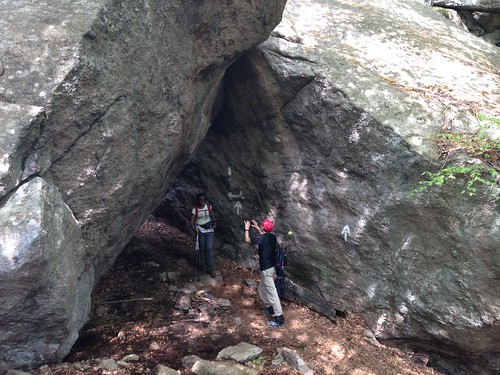Friday, May 30, 2014
Against hustling
Today, in our new downsized, casualized, contract-based, unpaid internship-heavy workforce, hustle is the new norm. Everyone is supposed to be an entrepreneur, constantly on the make for opportunities.
It’s one thing to keep one’s resume up-to-date, of course, or to attend the occasional continuing ed class. But hustle goes farther than that. We are all brands. We all have platforms. We network. We’re looking for the next opportunity as soon as we secure this one. We are devoted to our “dream” full-time, and if we aren’t we don’t deserve it. (No one can have more than one dream, in this mindset.) And this full-time marketing of ourselves is making me tired just thinking about it.
For one thing, it’s work, and for some people it’s more work than others. It’s like requiring everyone to be an extrovert, or insisting we all deliver excellent customer service. Only some of us thrive under those conditions.
For another, it’s unrelated to how good we actually are at the job itself, at least for most jobs. Is someone a better accountant because of their Twitter feed? No.
Finally, and most importantly, it’s taking time away from the jobs we’re actually trying to do. Every minute spent selling myself is a minute not spent doing my actual work. The thing that long-term employment (or tenure) gives us is the freedom to think about things, to produce lasting, significant ideas and things, to make decisions upon conviction and evidence, not fear that we’ll be unemployed next week. Places of discovery like Bell Labs are being replaced by ever-changing grant-money gigs with no room for serendipity.
Hustle is everywhere, in coding and in design and in marketing and in entertainment, but I see it up close in academia. Hustle is necessary in the adjunct system. Unless you’re an adjunct teaching a class on the side from your main job - as I am; they could fire me and I’d be fine - every semester is a whole new gig, or series of gigs, and you need each and every one of them to make rent. There is no room for experimentation or error. For those lucky enough to be on the tenure-track, the ratcheting up of publication expectations means exhausted assistant professors looking for easy-to-mine data sets, Least Publishable Units, and not a lot of room to think about big ideas.
Our students are hustling, too. Trying to be full-time students with an unpaid internship and a job that pays the bills, just so at graduation they can get an entry-level job that two decades ago they could have gotten with an associate’s and no experience is wearing them out.
We have gullibly swallowed whole this idea that constant accountability is a good thing, and the best way to achieve that is to make all of us precarious. Motivation by fear, fear of slipping out of the middle class, fear of slipping out of decent wages into poverty - it drives us to degrees we can’t afford and aren’t interested in, to working without pay, to competing solely on price, to putting up with sexual harassment and time theft at work. We don’t join unions, because we want to be judged on our merits rather than time served, but what we don’t realize is that we aren’t being judged on our merits anyway. We don’t want to pay welfare, because we want to believe everyone who is unemployed deserves it. We refuse to believe in structural explanations for anything, because that would be to confront our own helplessness.
Don’t stop and breathe. Don’t take time off for kids. Don’t fail to apply for every opportunity. Don’t be the one who refuses to stay late. Don’t question the meritocracy. And whatever you do, don’t stop hustling.
Sunday, May 25, 2014
Yoga
Mostly, I've been going to Magi and Jen's classes at Life in Motion. They are both very keen on correct form, which is exactly what I need. Today I went to a class at another studio - no names mentioned, since it's a studio and a teacher I like - and realized I wasn't ready for their brand of yoga yet. That doesn't mean crazy twists and inversions or even a thousand chatarangas; their style is very much "flow free and get loose," and my body still needs a lot of reminding to do things the right way.
My practice is somewhat changed, however, just as my capoeira practice has changed. For one thing, I use blocks more. I'm somewhat anti-prop (don't take me to an Iyengar class), partially because fussing around with them is a hassle but also because I often don't need them, so I would prefer to think I never need them. But since I'm going to look wimpy anyway, why be proud? My pigeon isn't going to get any more open if I don't get my shin parallel to the mat, and my shin doesn't get parallel to the mat without something under my thigh.
I have also only now figured out what child's pose is for. Oh sure, it's "a good place to rest" when the flow is too much. This is not news. But it's also a stretch for some particular muscles around the shoulder, which I didn't realize until my physical therapist gave it to me as homework. (Muscles that get very tight on me and have since long before my shoulder pain began.) Eleven years I've been doing this, and I had no idea.
It doesn't get much more basic than realizing you've been doing child's pose wrong.
Tuesday, May 20, 2014
Harriman Park hike

On Sunday I went on - even helped lead - a hike in Harriman State Park with the NY Ramblers. It was my first hike that was truly all in the woods since before my surgery. No tromping through suburbs or past highways on this hike, and it was wonderful. In the past I've been underwhelmed by Harriman; I'm not sure if I was just excited to be back in the woods or if Harriman really is nice in the spring.
Monday, May 12, 2014
Staten Island marshes

Yesterday I hiked with the NY Ramblers through Staten Island, starting at a marsh and ending at the Greenbelt. Much of the hike was through the sort of urban landscape that, frankly, I don't associate with sky-high New York property values, but it was definitely not the New York City I usually see. The marsh at the beginning, however, was particularly nice.
Wednesday, May 7, 2014
My core may look soft and squishy but
However, my form is also different. I really was missing a lot of core strength, which is not a euphemism for “abs.” I mean the entire of muscles that’s below the arms and above the hips. One of my teachers noticed that in armada I no longer lean forward, which you’re not supposed to; the body is a counterbalance backwards against the forward-reaching leg. I did martelo de solo on Monday for the first time in, oh, close to a year. It’s a kick that has given me trouble since I learned it two years ago; to be honest, I’ve been kind of faking it. (Did my instructors notice? Yes. They worked on it with me, but I literally couldn’t generate the liftoff from the hips and torso it requires. I felt stupid.) For the first time, though, I actually was able to get it. When I did it properly, it felt entirely different. There is still a lot of room for improvement with it, but that was a huge step.
I will be hiking on Sunday, and I am curious to see how that feels after three weeks of capoeira.
* It’s the general principle (“knee dips suck”). I wouldn’t, of course.
Thursday, May 1, 2014
Bridging the theory/practice divide
First, on what basis have we decided that the job academics includes outreach to the general public? To the extent our job descriptions include “service,” this mostly means service to the institution and to the academic community. (Read a tenure file if you don’t believe me.) There simply isn’t much time left to service the practitioner public when it does occur, it's often volunteer work, not knowledge-sharin. We teach our students, to be sure, but that's quite a different proposition from convincing a random financial aid administrator in Wichita or vice-principal in Schenectady to read my book. Producing knowledge is a distinctly different skillset than popularizing it, and perhaps the problem here is our failure to encourage the latter. We need more people who are capable of translating research into accessible, useful information, but there is no reason those should necessarily be the same people who produce that research.
Second, we haven't asked ourselves whether practitioners want our research. Of course, some do, just as some academics can popularize their work. But most people believe much more firmly in their own experience than in anyone's research. My management students are singularly uninterested in any findings about group dynamics, human perception, or ways of managing employees that have been shown to be effective. “In my experience,” they begin, obliterating the lifetime work of dozens of scholars in favor of their own small corner of the world. My students accept that I can teach them certain technical facts, such as the difference between a sole proprietorship and an LLC, but anything that comes across as social science-y is a matter of “opinion.”
We all do this, of course, in areas we aren’t experts in; confirmation bias and perceptual filtering cause most facts to bounce right back off of us. It’s not just my students, but me, too. We read about the Milgram experiments and think, I would never have gone along with that. I would have refused to administer those shocks! Or we believe we have the willpower to resist propaganda, when we don’t even have the willpower to resist a bag of M&Ms.
The thing is, all the popularization in the world is but a minor force against the tides of our personal beliefs in experiences. Sometimes, research can shake us out of our complacency; taking Harvard’s implicit association tests can be a powerful experience. More often, we read it and either agree or disagree before forgetting about it entirely. We have to face up to it only when it becomes policy (witness the storm around the Common Core; I dare say most of its supporters and detractors have only a vague idea what it is actually about, let alone if there is any research to the efficacy of its content).
No, it’s mostly hubris that makes us assume the practitioner public wants our expertise in the first place.
Most of us aren’t good at reaching practitioners, and the assumption practitioners want to be reached is overblown. For those reasons, I’d like to see us as a field ease off on the self-flagellation for a while. This doesn’t mean that academics that are skilled at sharing their work should stop, but maybe everyone else can stop apologizing while continuing to avoid doing it?